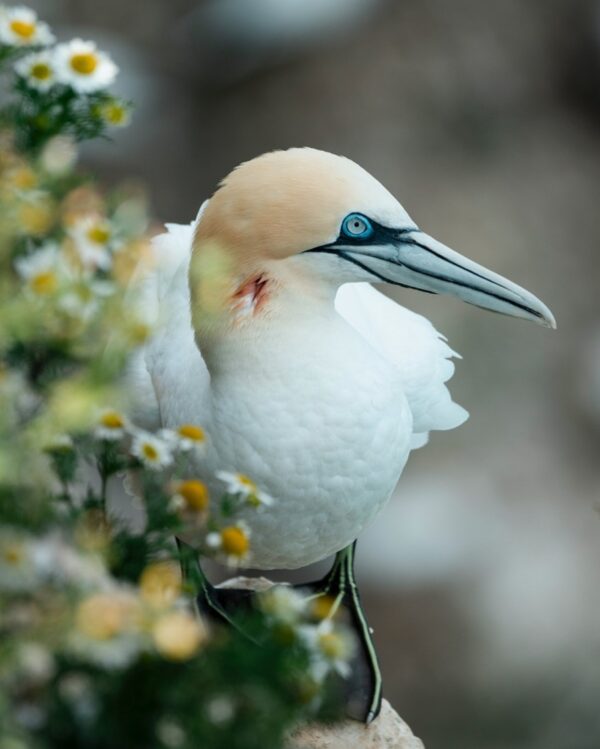Bird flu has caused a “catastrophic” fall in the number of seabirds in the UK, a study of breeding sites by the RSPB has found.
In some species the charity said bird flu had “completely reversed” previously positive trends.
The number of gannet nests at Grassholm in Pembrokeshire – the main colony in Wales and once the fourth largest in the world – dropped from 34,491 in 2022, to 16,482 last year.
Photo: Robert Laszlo
Wales hit hard
The report said gannets, common terns and Sandwich terns were among 11 species that were increasing in numbers in Wales before the first major outbreak of HPAI in 2021.
Julian Hughes, head of species for RSPB Cymru, said to the BBC: “The latest figures say Grassholm is now back to where it was in 1969. In one year, HPAI has undone what took more than 50 years of growth.”
Nearly all of the Sandwich terns in Wales nest at Cemlyn on Anglesey and figures from North Wales Wildlife Trust showed there were between 2,200 and 2,400 nests there in 2022. Last year, there were 1,100.
Overall, the number of common terns and Sandwich terns in Wales has dropped by more than 40%, according to the RSPB.
Great skuas in Scotland
Almost the entire UK population of great skuas live in Scotland. In 2022, more than 2,500 died, the study said. Numbers of the bird fell by 76% from 9,088 to 2,160, according to 2023 research by the RSPB.
Numbers of roseate terns were also seriously hit after the H5N1 strain of avian flu spread to wild birds in the summer of 2021, killing tens of thousands of them.
The RSPB said to Sky News: “From the new surveys carried out across the 2023 breeding season at selected sites the new study recorded devasting losses in gannets, great skuas and roseate terns. The three species saw declines of 25%, 76%, and 21% respectively, across 75%, 81%, and 98% of their UK population within a period of just 2-9 years.”
Jean Duggan, RSPB avian influenza policy assistant, told The Guardian: “that level of loss in a population we have international responsibility for is quite catastrophic. Globally, it’s very significant and has a knock-on effect for populations across the globe.”
You can read more about the RSPB report here.
